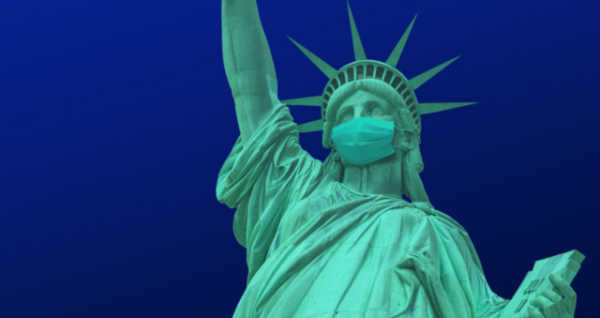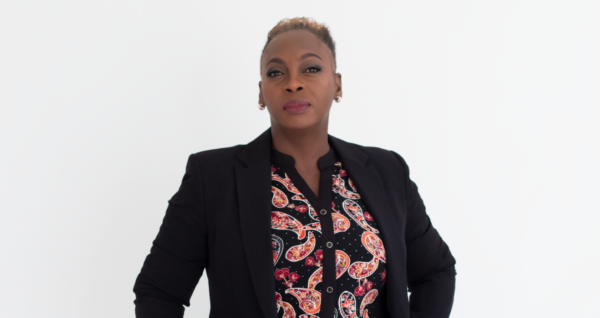Since COVID-19 hit New York City—the pandemic’s initial epicenter in the U.S.—the survivors Sanctuary serves have reported urgent concerns triggered or exacerbated by the public health and economic crisis, and the resulting quarantine.
Since COVID-19 hit New York City—the pandemic’s initial epicenter in the U.S.—the survivors Sanctuary serves have reported urgent concerns triggered or exacerbated by the public health and economic crisis, and the resulting quarantine. As New York State’s largest provider of trauma-informed, holistic services for these families, Sanctuary’s services are perhaps more important now than ever before.
Learn more about the range of challenges experienced by abuse survivors during this difficult time, and Sanctuary’s rapid, multi-pronged service, outreach, and advocacy response, below.
Urgent Needs
In addition to the trauma of abuse, survivors have experienced an array of challenges, including:
- Job loss, food, and housing insecurity
- Court closures preventing or delaying life-saving legal remedies like orders of protection
- Dangerous visitation situations
- Stressors and technology challenges around remote schooling, and other childcare issues
- Increased economic abuse such as stolen stimulus checks
- Heightened racism and xenophobia
- Abusive partners restricting reproductive and other healthcare access
- Immigrant clients’ fears of reporting virus symptoms or seeking emergency police or medical assistance.
Amidst a global spike in domestic violence, Sanctuary has seen a sharp increase in calls to our legal and clinical hotlines, double and triple the rates of previous years. We expect an even greater surge of need as restrictions are lifted and survivors have greater opportunities to seek out help. Throughout the crisis, the message survivors frequently heard and, in too many cases, internalized—from police, the court system, the media, or their abusers—is that their abuse did not constitute a serious “life or death” emergency compared to the medical crisis of the pandemic, leading them to believe that help was not available or accessible.
Sanctuary’s staff and survivor leaders have worked tirelessly to counteract these messages, to help ensure survivors’ safety and access to our essential services.
Our Response
 Sanctuary for Families pivoted rapidly to continue providing nearly all our holistic, life-saving services after stay-at-home orders went into effect in mid-March, converting all but our shelter services to remote within a matter of days. Over the past 6-½ months, more than 5,100 adults and children have received services, including the following:
Sanctuary for Families pivoted rapidly to continue providing nearly all our holistic, life-saving services after stay-at-home orders went into effect in mid-March, converting all but our shelter services to remote within a matter of days. Over the past 6-½ months, more than 5,100 adults and children have received services, including the following:
- Crisis intervention, safety planning, and case management via phone and video calls: Over 3,900 sessions to over 600 clients.
- Licensed mental health counseling via secure, interactive telehealth services: 35 clinicians have provided over 4,700 counseling sessions to over 500 adults, children and families.
- Conversion of our intensive, full-day career training to remote learning, purchasing and delivering laptops, software, and Wi-Fi hotspots to 40 trainees last spring (and 60 more this fall), and relaunching trainings within just a few weeks of quarantine order.
- Continued operation of our five shelters at capacity, with residential aides onsite 24/7 to ensure residents’ safety, and enhanced cleaning/safety protocols to protect their health.
- Expanding our clinical and legal helplines, staffing the legal line full-time with attorneys so that callers always get a live response (when they may have few free moments to call) and increasing helpline hours—responding to nearly 900 calls.
- Significantly expanding our direct cash assistance program, distributing more than $250,000 to over 425 families to date for emergency food, supplies, rent, medicine, clothing, and more.
Innovative Outreach
Sanctuary also rapidly developed new initiatives designed to connect with and provide resources to often-isolated abuse survivors and children, who may be cut off from regular avenues of access to assistance:
- Our clinical and legal helplines launched a website chat feature to enhance accessibility during COVID-19 and beyond—particularly crucial for survivors quarantining in dangerous situations and unable to safely call for help.
- Sanctuary clinicians and survivor leaders published two guides: a quarantine safety planning guide for domestic violence survivors and a guide for survivors of human trafficking to cope during COVID-19, which have been translated into multiple languages and reached more than 160,000 individuals online.
- The Virtual Courtroom Advocates Project trained over 80 pro bono attorneys to help survivors seeking orders of protection from remote courts—receiving over 250 referrals and obtaining nearly 180 protection orders to date—and has begun training law students to assist survivors this Fall.
- Targeted outreach to raise awareness of our new and ongoing services, as well as the rights of survivors during COVID-19, including ads on social media, ethnic news sites, taxis, and public areas at hospitals and other sites, including a powerful We’re Still Here video featuring staff and survivor leaders.
- We hosted a week-long, trauma-informed virtual summer camp for 25 teens affected by domestic violence, which saw high attendance and active participation.
- Volunteer and in-kind programming have continued with a virtual tutoring program, remote interview prep and career days for career training participants, and our annual backpack and school supplies drive for almost 600 children returning to school this Fall.
- Through an initiative overseen by the NYC Mayor’s Fund to Advance New York City, and privately funded by Rihanna’s Clara Lionel Foundation, Twitter founder Jack Dorsey, and Jay-Z, the Robin Hood Foundation, and more, Sanctuary was selected to administer nearly $500,000 in unconditional micro-grants to abuse survivors from domestic violence service providers citywide.
Thank You
The generous support of numerous companies, foundations and private donors have helped us meet the urgent needs of abuse survivors and their children during this unprecedented crisis. Even with the successful delivery of our services over the last seven months, with the pandemic still a major threat and so many New Yorkers facing deep economic uncertainty, the demand will only continue to grow. As our helplines continue to receive nearly 3x the number of calls and our staff field ongoing requests for emergency assistance, we must be prepared to address the anticipated flood of new clients and cases we expect when the city begins to reopen and survivors begin to have greater freedom to seek confidential help as stay-at-home restrictions are lifted.
We hope that you will continue to partner with us to help abuse survivors during the pandemic and beyond.




